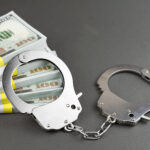A bill requiring alcohol-sensing ignition locks on the vehicles of most people convicted of drunken driving advanced in the New Jersey Legislature earlier this week.
The lock is a Breathalyzer-like device that keeps the vehicle from starting if it senses an alcohol level that exceeds the legal limit. Eight states have ignition-lock laws. New Jersey currently requires the locks for repeat offenders.
The proposal advanced by the Assembly Law and Public Safety Committee extends the mandate to first-time drunken drivers whose blood-alcohol content registers .15 or higher, nearly twice New Jersey’s .08 limit. It also permits judges to order ignition locks for first-time offenders with a blood-alcohol level of .08 to .15, and extends the length of time the locks are required.
The original bill requiring ignition locks for everyone convicted of drunken driving regardless of blood alcohol level failed to gain traction and was amended.
Acknowledging that not everyone will be satisfied with the compromise, Sen. John Girgenti, D-Hawthorne, noted that New Jersey already imposes some of the toughest DUI penalties in the country, which include mandatory license suspension, a license restoration fee and insurance surcharges.
The proposal is dubbed “Ricci’s Law” for a 17-year-old South Jersey teen who was killed by a repeat drunken driver while riding his bike. His sister, Adrienne Branca of Egg Harbor Township, tearfully testified at Monday’s hearing, imploring lawmakers to enact the tougher penalty.
Mindy Lazar, executive director of MADD New Jersey, said lengthy license suspensions alone do not stop convicted drunk drivers from continuing to drive and drink. She said ignition locks are like an “electronic probation officer,” and said MADD advocates the locks for all drunken drivers.
However, others said it is unfair to punish a first-time offender who registers barely over the legal limit the same as a three-time DUI offender whose blood-alcohol content is far over the threshold.
The American Beverage Institute and industry lobbyist Jeffrey Warsh were among those who pushed for the exemption for some first-time offenders.
A prior attempt at advancing the legislation in New Jersey failed, although judges have discretion to order the ignition locks.
A similar proposal is pending in the Assembly.
Was this article valuable?
Here are more articles you may enjoy.

 Texas Among Several States Facing New Fire Risks: Weather Watch
Texas Among Several States Facing New Fire Risks: Weather Watch  Hawaiian Electric Hits 40-Year Low Ahead of Maui Fire Report
Hawaiian Electric Hits 40-Year Low Ahead of Maui Fire Report  CoreLogic Report Probes Evolving Severe Convective Storm Risk Landscape
CoreLogic Report Probes Evolving Severe Convective Storm Risk Landscape  California Chiropractor Sentenced to 54 Years for $150M Workers’ Comp Scheme
California Chiropractor Sentenced to 54 Years for $150M Workers’ Comp Scheme 